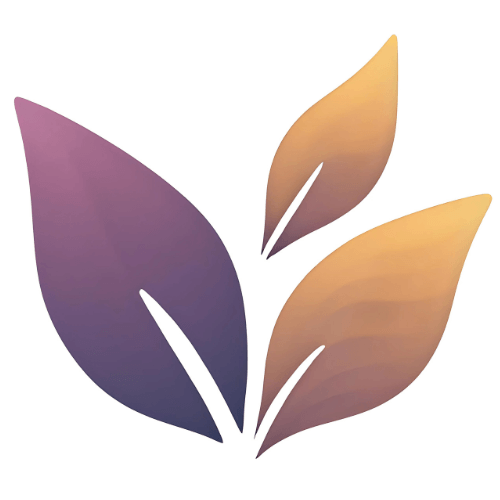Resilience Training: Building Teams That Thrive
Give your people the tools to navigate change and perform under pressure
Next Session: Friday, August 8, 2025 | 5:00-8:00 PM | Virtual (3 Hours Workshop) | Limited to 12 Participants
Save Your Seat: $167 (until July 25) Regular Price: $197use code: Thrive

Why I Created This Workshop
I've seen it countless times. A team that looks great on paper falls apart when the pressure hits. After working with leaders across Edmonton for years, one thing became crystal clear: talent alone doesn't create resilient teams.
The teams that stay strong through tough times aren't just skilled – they have something deeper. They've built collective resilience practices that transform challenges into growth opportunities. This workshop shares the exact tools these high-performing teams use every day.
The Real Threats to Team Performance
The Resilience Gap
Let's be honest – most teams today are running on empty. They're expected to pivot constantly, innovate relentlessly, and handle more complexity than ever before. But they're missing the foundational practices that make this sustainable.
Without these practices, even the strongest teams eventually crack. People burn out. Engagement drops. Innovation stalls. And culture suffers.
The Pressure Cooker Problem
Your people are caught in a pressure cooker. They're trying to maintain peak performance while navigating non-stop change. When people lack collective resilience skills, this tension creates a vicious cycle: higher stress leads to poorer decisions, which creates more problems, which increases stress even more.
The Big Misunderstanding
Most leaders think resilience means "powering through" or "bouncing back." This outdated view actually makes teams more fragile, not less. Real resilience isn't about grinding harder – it's about working smarter together. It's a set of team practices, not just individual grit.
What Makes This Different
Team-Level Solutions
This isn't another "stress management" workshop that puts all the responsibility on individuals. We focus on the team practices, systems, and norms that create collective resilience – the kind that shows up when it matters most.
You'll walk away with tools you can implement in your next team meeting to start building a resilience advantage immediately.
The 3-Pillar Framework
Your team needs resilience in three critical areas:
- Operational Resilience (how you structure work and respond to challenges)
- Cultural Resilience (how you maintain trust and psychological safety)
- Wellness Resilience (how you manage collective energy and prevent burnout)
When you strengthen all three pillars, your team doesn't just survive challenges – it grows stronger through them.
What We'll Cover
Hour 1: Where You Stand
- Take the Team Resilience Assessment to spot your blind spots
- Identify early warning signs before they become major issues
- Map your team's unique resilience strengths and gaps
Hour 2: Practical Tools
- Master the 5 high-impact practices that boost operational resilience
- Learn the "Pressure Test Conversation" method that builds psychological safety
- Implement team energy management rituals that prevent collective burnout
Hour 3: Action Planning
- Build your 30-60-90 day Resilience Roadmap with clear next steps
- Create "micro-habits" that fit into your existing team rhythms
- Set up simple metrics to track your resilience progress
Perfect For
People Leaders
- Managers navigating organizational change
- Leaders concerned about team morale and retention
- New leaders building team culture from scratch
Team Contributors
- Project teams handling high-stakes deliverables
- Cross-functional teams facing silos and communication gaps
- HR and L&D professionals supporting organizational resilience
What Participants Say
My team was struggling with change fatigue when we found Nimir's workshop. The practical tools made an immediate difference. We implemented the weekly resilience check-in, and within a month, our team pulse scores jumped by 20%. People finally felt heard and equipped to handle the pressure
The 3-pillar approach was a game-changer for us. We'd been pushing wellness programs that weren't working because our underlying team processes were broken. After the workshop, we restructured our sprint planning using Nimir's framework. Productivity went up while after-hours work dropped dramatically
Workshop Investment
$347
early bird (until July 15)
$397
regular price
Four 90-minute sessions (July 29, Aug 5, 12, 19)
Complete Burnout Profile Assessment ($195 value)
Personalized Energy Recovery Protocol
Workshop materials and implementation guides
30-minute follow-up coaching call
Access to private community for ongoing support
Quick Answers
Should my whole team attend?
Ideally, yes. When multiple team members share the experience, implementation happens faster and sticks better. That said, even one team member can drive significant positive change by bringing these tools back to the team. Many leaders start by attending solo, then bring their full team to a future session.
Is this just for struggling teams?
Not at all. High-performing teams use this workshop to stay ahead of challenges and maintain their edge. Think of it like preventative maintenance – it's much easier to build resilience before you desperately need it. That said, teams currently under pressure will find immediate practical relief.
How is this different from team building?
Traditional team building focuses on connection activities without addressing the fundamental work patterns that create stress. This workshop delivers practical tools that integrate with how your team already works. You'll get real-world practices that fit into your existing meetings, workflows, and communication channels – not just feel-good exercises.
Build Your Team's Resilience Advantage
Three hours to transform how your team handles pressure. Simple tools. Immediate impact. Lasting results.
Save $30: Register by July 25 Only 25 Spots Available

